
Lethal Weapon eschewed idealist traditions for alternative festive cynicism, and it did so in joyous fashion. VHS Revival decks the halls with a Christmas cracker
Western cinema matured pretty radically during the 1970s, a sobering reflection of modern American culture. The doomed Vietnam War marked a generational shift in patriotic sentiments, citizens no longer willing to advocate conflict based on populism and propaganda. Thanks to the domestic horrors perpetrated against the Civil Rights Movement and Richard Nixon’s ‘Watergate’ debacle, a political scandal that led to the resignation of the 37th President of the United States, Americans had plenty to be cynical about, particularly after a spate of ritualistic murders that saw pregnant Hollywood starlet Sharon Tate sacrificed by the notorious Manson Family in an act that sent shockwaves through the industry. By the decade’s end, notions of white picket fence suburbia seemed like a long-forgotten fantasy.
Michael Cimino’s The Deer Hunter (1978), a film about a group of patriots wrecked by the ravages of war, and Francis Ford Coppola’s epic 1979 movie Apocalypse Now, hammered home those truths, but cinema had evolved long before. Anthropological pieces such as Martin Scorsese’s Taxi Driver unearthed the transgressive lice festering beneath American society with a fine tooth comb. Coppolla’s The Conversation (1974), the multi-layered story of a paranoid surveillance expert, played on Nixon-era fears. William Friedkin’s The French Connection gave us a morally questionable NYPD officer who challenged the tried-and-tested good guy/bad guy paradigm. The horror genre also came of age, Tobe Hooper’s ‘based on real events’ The Texas Chainsaw Massacre eschewing monsters of the supernatural persuasion for explicit and relatable violence that would set the tone for the next decade.
By the 1980s, scepticism had well and truly set in, and once again movies reflected that. Thanks to a rise in Cold War tensions and an oversaturated home video market, patriotic action movies would return with a particularly loud bang, but audiences didn’t take them half as seriously as before. Horror was now dominated by an overabundance of slashers, watered-down versions of Hooper’s progenitor that fell comfortably into convention, going from dead-eyed hysteria to flip self-awareness before the decade was done. Even the time-honoured musical, once a bastion of colourful escapism, would turn to the dark side with Frank Oz’s deliciously wicked Little Shop of Horrors. Society had become so desensitized to violence and corruption that sensibilities had hardened irrevocably. Lies and betrayal, the breakdown of the family unit, an upturn in real-life serial killers, it was old news. You either swallowed it bitterly or built yourself a wall of irony.

Of all those genres, none were as traditional, or as sacred, as the Christmas movie, which had provided audiences with festive good cheer since movies came into existence. There had always been elements of darkness going all the way back to Walter R. Booth’s 1901 silent film adaptation of Charles Dickens’ A Christmas Carol, Marley’s Ghost, but the spirit of Christmas and all its traditions were typically front and centre, and there was always a moral resolution that kept the spiritual Grinch from the door. Even It’s a Wonderful Life‘s George Bailey, having diced with suicide, is delivered from sin by a guardian angel who smacks of mawkish wish-fulfillment. The 1980s were imbued with a deep sense of 50s nostalgia, but it had become difficult to swallow such idealism.
What did one shepherd say to the other shepherd? Let’s get the flock out of here!
Martin Riggs
During the 1980s, Christmas movies began to evolve like a pack of vicious Mogwai after a hefty midnight snack. Joe Dante’s Gremlins would contribute to the founding of the PG-13 rating at the behest of producer Steven Spielberg after a widespread outcry from parents distinctly unprepared for a kids Christmas movie of an entirely different breed (in the UK, it was even lumbered with a 15 rating). The tale of a quaint, traditional town ravaged by a pack of evil critters, the movie, an ironic take on It’s a Wonderful Life, saw its eponymous antagonists hang a family dog from Christmas lights, murder a high school biology teacher, and even send resident Scrooge Mrs Deagle careening through a plate-glass window on a souped-up stair lift. Whatever Dante’s intentions, Gremlins touched a raw nerve with parents weaned on Christmas movies of the more traditional variety.
Despite its tonal deviations and 80s ethos, Gremlins still had Christmas traditions front and centre, even if it did put the postcard suburbia of previous generations so ruthlessly to the sword. Other 80s movies used Christmas almost as a backdrop, bolstering feelings of redemption with subtle nods that left us questioning whether they actually qualified as Christmas movies. The most famous of the era was action high point Die Hard, which despite its choice of music, both traditional and otherwise, a series of macabre wisecracks in the Christmas mode and various other festive touches, was an action movie first and foremost. Detective John McClane, estranged from his family, had to fight tooth and nail for his traditional Christmas under the tree, one that was ultimately left to our imagination.

Less talked about, but equally connected to the festive season, is Richard Donner’s innovative buddy cop thriller Lethal Weapon. It’s difficult not to remember what would become a money-spinning franchise as anything but heartwarming comedy with holster accessories, especially those later sequels, but the original instalment, as well as being high-tech and ahead of its time in terms of its buddy dynamic, is a seriously dark thriller. The hugely endearing chemistry of stars Mel Gibson and Danny Glover still lends events a comic edge, but the film deals with personal loss and suicide, highlighting the very real burdens of the ‘silly season’ before offering the kind of yuletide redemption more traditionally associated with the time of year. The film gives us plenty of warmth, but the joy we’re able to derive is earned and then some.
Lethal Weapon‘s opening perfectly encapsulates the juxtaposing tendencies of Shane Black’s classic screenplay. The film begins with 50s crooner Bobby Helms’ rendition of Jingle Bell Rock, yet another nod to a bygone era, Donner aerial panning a muted LA metropolis in the dead of night (he sure loves those spectacular helicopter shots). From there we cut to a semi-clad beauty teetering on the edge of consciousness. Michael Kamen’s score turns dreamily sinister as Amanda Hansaker stumbles out onto the balcony of a spectacular high-rise apartment and falls headlong into the night. Her body, once a feather, plummets like a sack of coal in a bravura sequence of shots, crashing through the bonnet of a car for good measure. It’s an utterly startling introduction to one of the finest action movies ever made.
If Lethal Weapon was concerned solely with bringing those responsible for Amanda’s death to justice, it wouldn’t have been so unique, but its dark depiction of the festive season isn’t over by a long shot. Christmas movies typically present a singular obstacle or tragedy and set about fixing it, but in Lethal Weapon the sense of turmoil runs much deeper. Even the film’s minor characters hint at a life of misfortune for the many LA denizens during the holidays. Thanks to an irrepressibly warm climate and a total absence of snow, it probably doesn’t feel much like Christmas in the traditional sense.
You know, Roger, you are way behind the times. The guys of the 80s aren’t tough. They are sensitive people. Show a little emotion to a woman and shit like that. I think I’m an ’80s man.
Sergeant McCaskey
The person indirectly responsible for Amanda’s suicide, a street walker named Dixie who is later C4’d into orbit, doesn’t strike you as the kind of person who looks forward to yuletide festivities, if she’s even aware what day it is. A self-proclaimed 80s man who works in Roger’s precinct admits to crying alone in bed. There’s an erratic ledge jumper, brought unceremoniously down to Earth in just one example of the screenplay’s exquisite grasp on cynical comedy (the bullet that kills Michael Hunsaker while piercing the carton of eggnog he’s holding being another, subtler case in point). Everywhere you look in Lethal Weapon Christmas seems to wrap people in a plague of tinsel.

Then there’s our wild-eyed protagonist. The film’s titular ‘Lethal Weapon’, Martin Riggs, is a strung-out Vietnam vet mourning the death of his wife. Greeting each morning with a cigarette butt and a stale beer, he lives in isolation in a trailer far away from suburbia and thinks of reasons not to eat a bullet every day of his life. That reason is the job, but other cops are scared to partner up with him. Riggs is a man with a death wish, a person who puts himself in harm’s way with the barely suppressed hope that he’ll catch a bullet and be reunited with his lost love. The criminals who call his bluff get a crash course in crazy that has them submitting like obedient dogs, and they’re the lucky ones. Some have Riggs pegged as a psychotic at the end of his tether, others figure he’s simply trying to draw a psycho pension and qualify for early retirement. The truth is, he’s neither, but nobody is willing to stick around long enough to find out.
That’s until Riggs meets Roger Murtaugh, a police sergeant only days from retirement. In an 80s environment of cocaine nights and middle-aged bachelors, Roger is the personification of a traditional family man, a 50s throwback with high moral values and a loving family who comprise his whole world. Rog is the perfect foil for the broken-down Riggs, a gentle giant who shrugs off stress and strife with a warm, casual air that proves deeply infectious. His family know how lucky they are, which is why they no longer want to see him risking his life for the good of society, and on the eve of his 50th birthday he sees no reason not to grant them that wish. Put succinctly, Roger is getting too old for this shit.
In reality, Danny Glover was only 40 when he took on arguably his most famous role, one he would revisit for a series of money-spinning sequels that would forge characters that audiences could relate to in a way rarely glimpsed in the action genre. Two years earlier, Glover had wowed moviegoers as abusive curmudgeon Albert Johnson in Stephen Spielberg’s postcolonial, coming-of-age drama The Color Purple, and it is testament to his range that he was able to distance himself from such a mean-spirited performance to become one of the most likeable characters in mainstream Hollywood. In Lethal Weapon, Murtaugh is the grounded yin to Riggs’ explosive yang, but for a while it seems like his chain-smoking partner is too far gone. In Riggs, Rog sees the asshole who will get him killed before he has the chance to hang up his holster.

Riggs shows his homicidal tendencies early on, but also the soft centre beneath, particularly in the Director’s Cut. There’s a nixed scene early on that shows Riggs recklessly walking into gunfire as he attempts to save a class of school kids being held hostage. Later, he picks up a hooker and pays her to go home and watch TV with him. Neither scene is essential to his character, proving superfluous to the theatrical cut’s immaculate pacing, but they are further proof of the loose cannon we’re dealing with and the fine line he initially treads. The gut-wrenchingly desolate scene that sees Riggs jam a pistol in his mouth, breaking down while a Looney Tunes Christmas special plays futilely in the background, is enough in itself to hammer the point home, and when Rog’s thumb is the only thing stopping him from repeating the act near a crowded street in broad daylight, you realise this is no passing phase. Depression is a harsh mistress, and there’s nothing like the festive season to bring out the worst in her.
Lethal Weapon was Gibson’s first major action lead outside of Australia, though at 31 the actor was already a ten-year veteran, most notably as the face of the iconic Mad Max series. He had also starred alongside Sissy Spacek in 1984’s Oscar-winning drama The River, as well as critically acclaimed Australian dramas Gallipoli (1981) and The Year of Living Dangerously (1982), so he was no slouch acting wise. Gibson shows touches of his drama heritage here, but the Lethal Weapon movies are all about personality and camaraderie, channelled through the wonderful onscreen chemistry of our two leads, one of the most endearing ever captured by a lens.
Hey, look friend, let’s just cut the shit. Now we both know why I was transferred. Everybody thinks I’m suicidal, in which case, I’m fucked and nobody wants to work with me; or they think I’m faking to draw a psycho pension, in which case, I’m fucked and nobody wants to work with me. Basically, I’m fucked.
Martin Riggs
I say two leads because unlike most action movies, Gibson and Glover receive almost equal billing. Gibson’s blue-eyed charm and boundless energy make him the star attraction, and though the film’s title alludes to the Riggs character, its central narrative revolves around Roger, who is contacted by ex-war buddy Michael Hunsaker following the murder/suicide of his daughter. Unlike many black and white pairings, it never feels like Roger is filler. Riggs may be the film’s undisputed bad ass, but Rog isn’t there to simply make up the numbers and appeal to the black demographic. The two are very much a unit who couldn’t exist without one another, and Roger isn’t the crook or comedian in the equation, the character who earns the respect of his white superior by making the necessary adaptation. If anything it is Riggs who needs Roger. Murtaugh is the responsible head of a household, the calming influence who leads Riggs along the right path. He doesn’t get by on crass humour or racial catchphrases. He’s an honest, decent man who welcomes the white vagrant into the fold, a character driven by purely human qualities who is worthy of our respect.

Director Donner and his screenwriting collaborators would continue to give Murtaugh equal billing as the franchise unfolded. In fact, racial equality has always been central to the Lethal Weapon series. The anti-Apartheid sticker glimpsed in the first movie was elaborated on in the equally thrilling Lethal Weapon 2, Roger embarking on a personal crusade against Joss Ackland’s South African diplomat and his ‘master race’ of racist lackeys. In Lethal Weapon 3, a movie which coincided with the LA Riots and the fallout out of the infamous Rodney King incident, Donner and company tackled gun crime in Los Angeles and the impact of police corruption on inner city gangs. In Lethal Weapon 4, Roger took a stand against human slavery, this time in the form of the Hongs, a Chinese family shipped into America by the Triad mafia and abandoned by US authorities.
In Lethal Weapon, Roger sets out to repay an emotional debt to Hunsaker, who took a bayonet in the lungs for him over in Nam (that was nice of him), but their relationship is tested when a gang of drug-dealing mercenaries look to put our duo out of business, a development that forges one of the most cherished onscreen bonds in all of cinema. Gradually, Riggs becomes Roger’s pet project. Rog spends most of the movie attempting to tame Riggs, hassling him about smoking, teaching him the virtues of shooting for the leg and generally adopting him as an extended part of the Murtaugh homestead. Riggs takes to the Murtaughs like a duck to water, bringing Rog coffee in bed like a dutiful wife and generally becoming a household fixture. It’s here that we’re introduced to Martin’s softer side, but when eldest daughter Rianne is kidnapped and her life threatened, Riggs is threatened by extension. A monster is stirred.
Riggs’ one-man rampage, escaping electrocution at the hands of Al Leong’s torture expert, Endo, and toppling the infamous Shadow Company’s operation like a demolition expert imploding a skyscraper, is absolutely devastating. There’s also a hypertense desert stand-off, shot in spectacular fashion by Donner and cinematographer Stephen Goldblatt, that displays Riggs’ world class skills as a ruthless marksman. Gibson’s charm may be his trump card, but few actors in the heartthrob mode can pull off a believable bad ass quite like him. From the moment we learn of Riggs’ background we’re waiting to see if he can live up to his hard man reputation, and when the time finally comes to deliver, he doesn’t disappoint. He is every bit the long-dormant killer Mary Ellen Trainor’s relentless psychologist has warned us about.

But circumstance is a great healer, and in the welcoming arms of the Murtaughs, Riggs finds his reason for adapting. The relationship arc of our two leads is a joy to behold, partly due to Shane Black’s innovative screenplay, partly due to Gibson and Glover’s joyous antics, which spill out in a rainbow of natural rapport. Donner is also central to establishing such a family element. Those who have worked with the filmmaker will attest to the family aura forged behind the scenes, to a special collaborative vibe that makes cast and crew members come together, all pulling in the same direction to create magical experiences both onscreen and off. The Lethal Weapon series is the perfect example in this regard. Not only do you invest in our lead duo’s burgeoning relationship, you’re endeared to the entire cast. You’re there for the laughter and the heartache. You will them every step of the way.
Remarks like that will not get you invited to Christmas dinner!
Roger Murtaugh
It didn’t take long for Donner to realise that he had stumbled upon the right duo to lead such a project, a read-through from the movie’s would-be stars leaving him in “Seventh heaven”. As the filmmaker would later explain, “[Gibson and Glover] found innuendos; they found laughter where I never saw it; they found tears where they didn’t exist before; and, most importantly, they found a relationship — all in just one reading.” The same can be said of the characters who they portray. From the very beginning the two are drawn hopelessly to one another, Roger initially mistaking the precinct’s newbie for an armed criminal looking to tear up the place, the first of several touchy confrontations that threaten to spell disaster. Despite both characters having a Vietnam background, the screenplay never goes down the Rambo road. In fact, it even slips in a cheeky nod to those kinds of movies, which had become somewhat trite and overblown by the late 1980s. “It’s over, you know,” Roger tells Riggs prior to their first shift together. “What is?” Riggs asks. “The war.” “Erm, yes. I know,” Riggs sarcastically replies. Later, after killing a suspect who almost gets the drop on Rog, Riggs is asked if he’s ever met anyone he hasn’t killed. “Well I haven’t killed you yet,” he replies, yet another classic line that leads Rog to retort, “Well, don’t do me no favours.” In reality, he’s already done him the ultimate favour, he’s saved him from certain death, and a lifelong brotherhood is forged.
Even at his lowest, Riggs displays a prankish charm at odds with his fearsome reputation. Early in the movie he goes undercover with some drug dealers on a Christmas tree lot, teasing them by counting a hundred dollars for a stash of cocaine worth $100,000. He ends the scene in over-the-edge, suicidal mode, but the comic spark and sense of mischief is intrinsic, exploding in a wild, yet ultimately serious Three Stooges impression. He sends plenty of mischief Murtaugh’s way too. Despite his tough guy reputation and cavalier antics, he’s a big kid at heart.

Even more irresistible is the partnership’s dynamic. The screenplay is so water-tight, the improv so dead-on. The scene at the shooting range captures it all so beautifully, displaying the danger and good humour in Riggs and the back-and-forth banter that makes them such an endearing package. In a classic scene, Rog is proud of his near-perfect revolver shot from close range. In response, Riggs shoots a smiley face into a target that’s almost out of sight, foreshadowing his killer instinct with a playful insouciance. “Have a nice day.” Later, after Riggs has met the family, Rog opens a trash can just in time to catch his partner’s empty. It’s a subtle moment, but a telling one. They’ve already achieved total harmony, and Riggs isn’t shy about criticising Trish’s lousy cooking, something Roger seems to appreciate. When you can be that honest, you know you’ve found someone special.
Despite its largely cynical view of Christmas, Lethal Weapon‘s sentiments are traditional at heart; when Riggs finds solace at the Murtaugh Christmas dinner, gifting Roger the hollow-point bullet he no longer needs, we’re back in familiar festive territory. Our dynamic duo go from uncaring and resentment to love and dependency in a 105-minute movie that establishes the richest buddy relationship the action genre has ever known. This is a world strewn with violence, with loneliness and isolation, but also with reassuring irony and soothing kinship. It is gritty, humorous and touching in equal measures, a recipe that has never been so refined in the action movie canon.
Many fans actually see Lethal Weapon 2 as the superior movie, and there’s certainly a case for that, but Riggs is something of a domesticated animal by that point, Lethal Weapon‘s original relationship arc one that could never be repeated. It’s just as fun seeing their relationship blossom, which despite the inevitable symptoms of sequalitis is what made the series so rewarding going forward, but only one instalment makes my Christmas list. Lethal Weapon may not be as humorous or as action packed as its successor, but it has a darker, more dynamic edge, with a redemptive journey that makes it a one-of-a-kind action thriller. When the first notes of Elvis’ rendition of I’ll Be Home For Christmas reach us like a parting gift, there’s a homeliness that very few action movies achieve. It’s almost like hanging out with old friends. The faces are familiar, the joke never gets old, and you often find yourself seeking out the memories as if the lives of these characters were your very own.
Director: Richard Donner
Screenplay: Shane Black &
Jeffrey Boam
Music: Michael Kamen &
Eric Clapton
Cinematography: Stephen Goldblatt
Editing: Stuart Baird









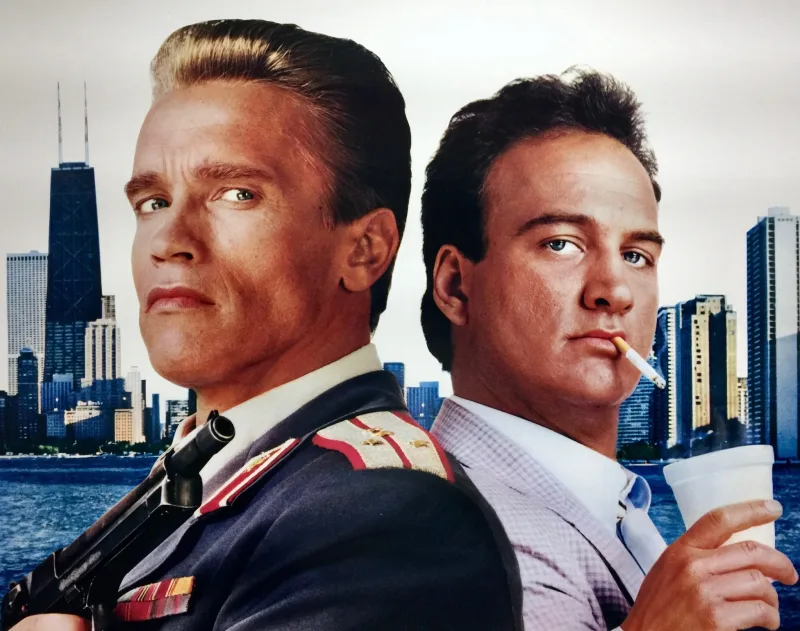


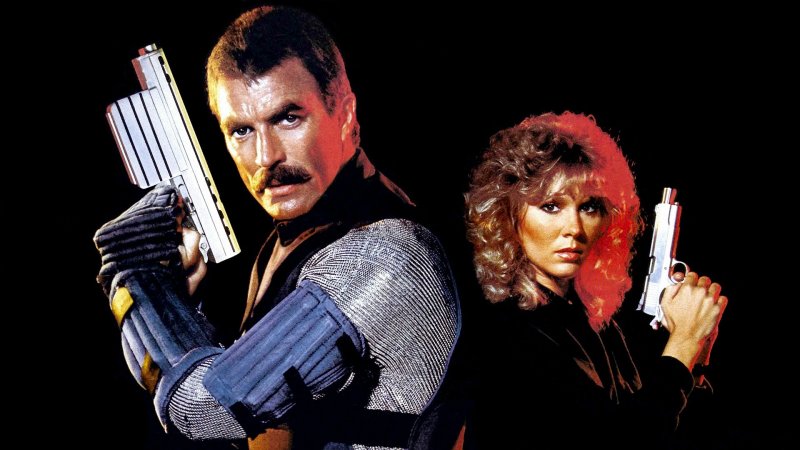






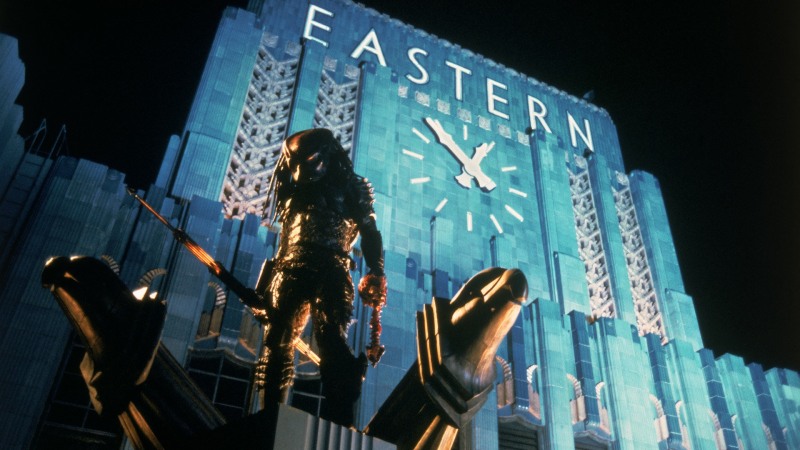
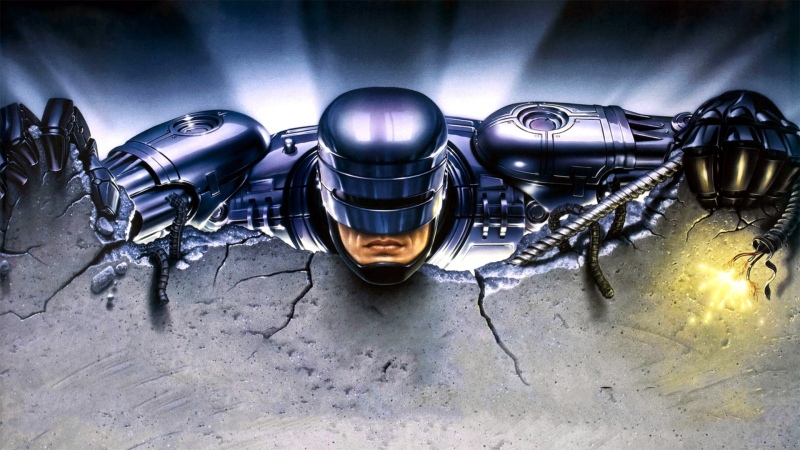





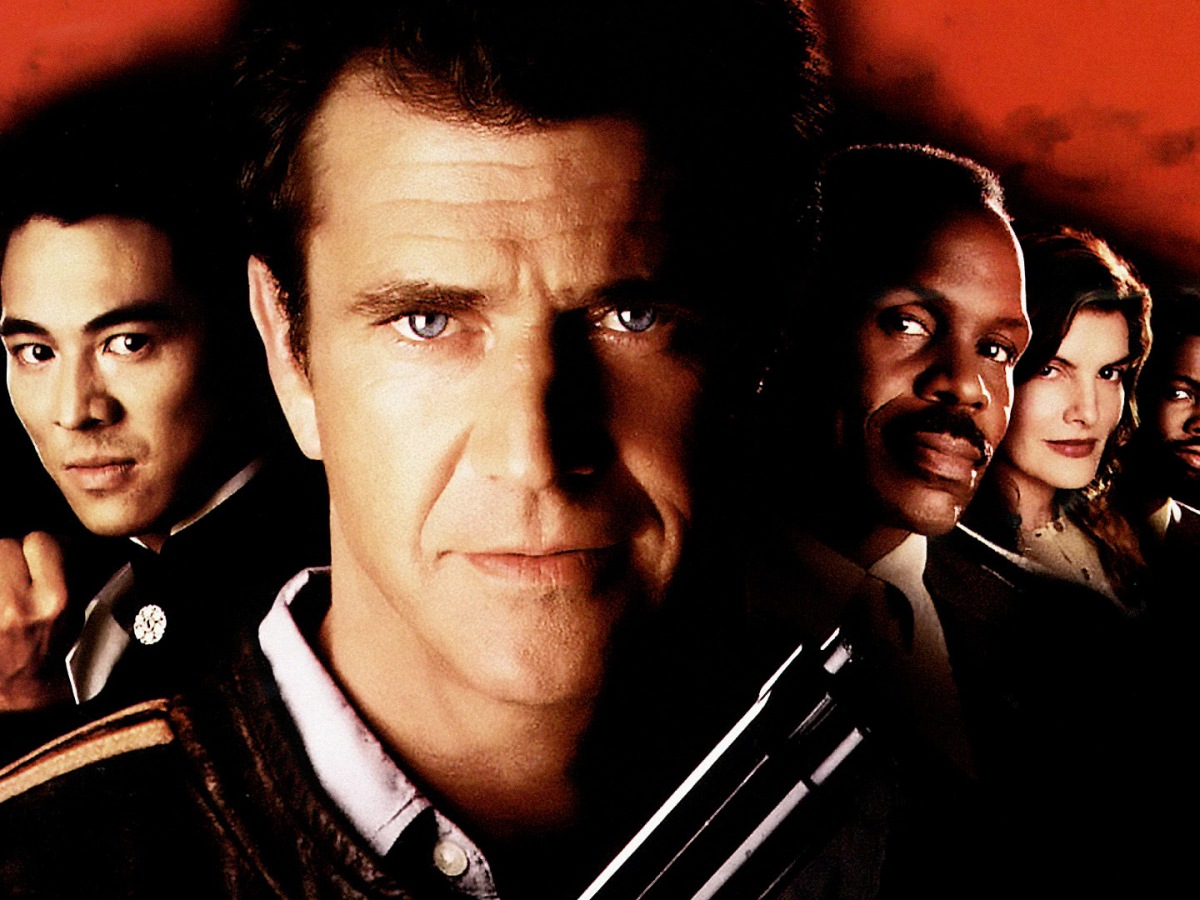
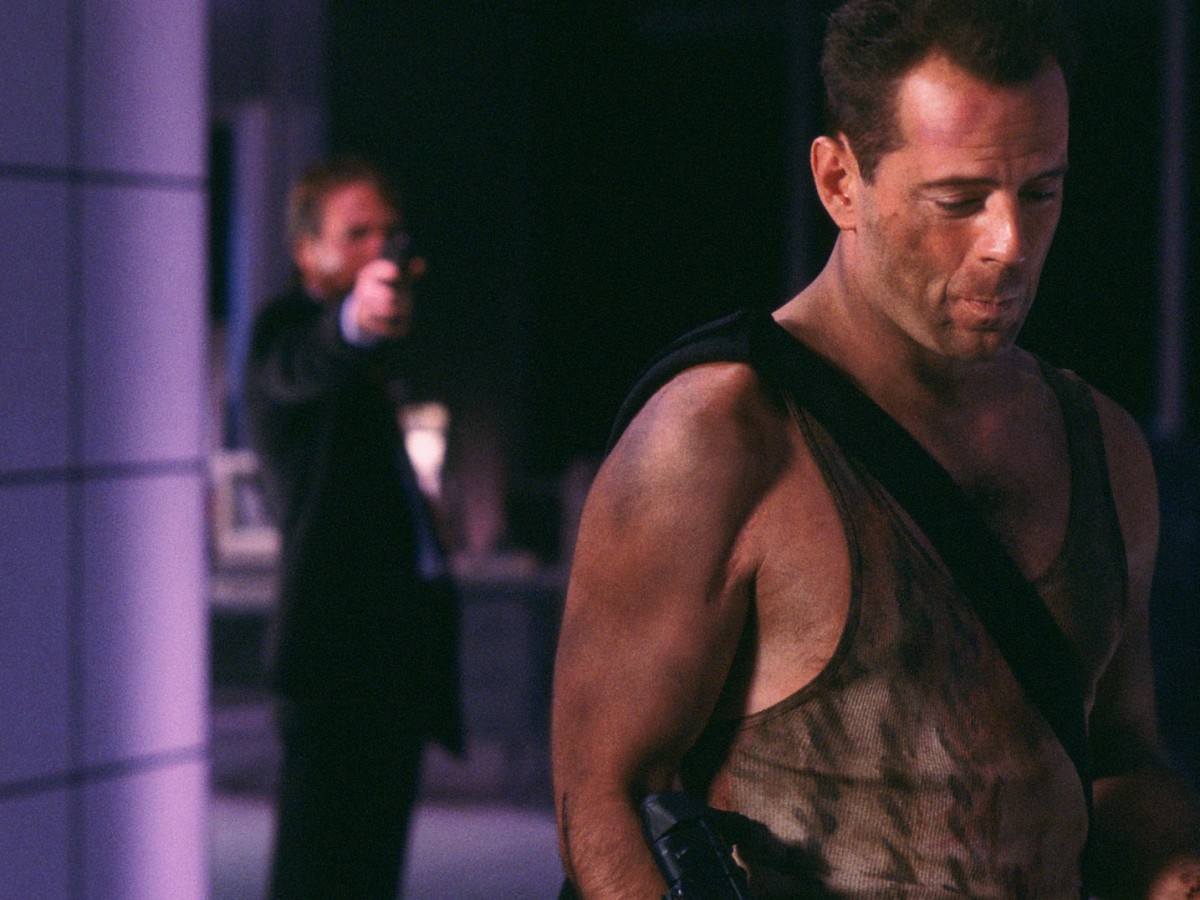


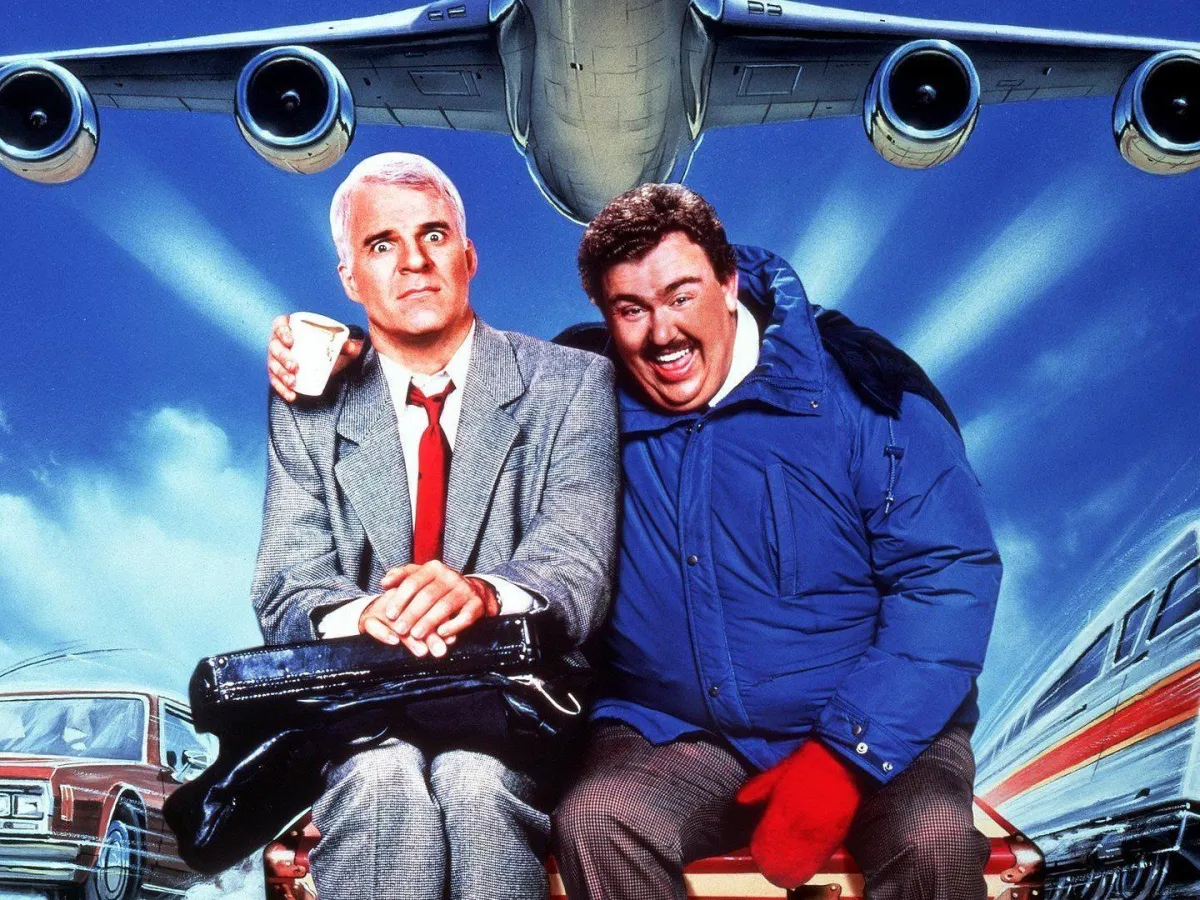






I’m never too old for this “Lethal Weapon”! Another great essay, and what I really enjoy about the film’s content is that there are layers to everything going on: Amanda didn’t just take a flying leap, her dad is more than a grieving parent, Riggs isn’t some bent cop trying to proclaim mental disability…, and the storyline manages to incorporate Vietnam as we progress through, giving something of a callback to those war films you mentioned early in the write-up.
I never did realize how cynical many of these films were, I just happily went along for the ride. But I think “Lethal Weapon” does subversiveness justice (ha ha, justice…pretty thin, right, probably nothing?:-).
He he, I’ve never viewed The Director’s Cut, but the scene with Riggs picking up the hooker to go back to his trailer and watch TV with him sounds like something our Riggs would do.
Even the smaller lines in the film grab me, like when Mr. Joshua (the true psycho of the film) carjacks the motorist and says, “Mind if I test drive your Audi?”. As a kid, I didn’t understand what an Audi was, my mother had to explain it to me, and nowadays I think it’s hilarious. If Mr. Joshua lived, he probably would’ve been dynamic when it comes to “Grand Theft Auto” games. Also, I dig Riggs chasing Mr. Joshua on foot during that portion of the film; for me, it’s a subtle but tense action scene because of the contrast between the torture, shooting, & explosions that occurred just right before.
I feel Murtaugh was the oar that righted Riggs’s wayward ship, which might just be what means the most to me in the entire film. Just really checks all the boxes for what I’d want to look for in entertainment: emotional examination of the human character, action, humor, thinking…like a Christmas stocking stuffed to the max.
Poor Trish though, her cooking really takes a ribbing, and that carries over to the sequel, which I also find outstanding. But hey, without this fine feature here, there is no awesome sequel!
LikeLike
I actually watched Lethal Weapon 2 again after reading your comment. I’ve always thought it’s the best instalment for many reasons but I feel the original is better for others. The quality dipped after (though I still love all four), but the first two are exceptional movies.
LikeLiked by 2 people
I can understand why you’d feel that the sequel is the best installment Edison, it’s as if the first film got the preliminaries out of the way, and we’re back again to get right down to more awesome things (I think it was a good move for the sequel to begin hitting the ground running as it did)! I do think that apples to apples and pound for pound, it’s equal to the first film (yet very different I think) and one of the strongest sequels ever (“The Godfather, Part II”, “The Empire Strikes Back”, it HAS TO be with those films, right?).
Yeah, I consider the first two films completely spot on & unimpeachable in so many ways, part 3 is pretty alright, while 4 for me feels a bit overcrowded, but good enough to get by (still charming, but getting a little too old for these sequels).
LikeLiked by 1 person
Hi there…I’m a 43 year old movie nerd with special thing for the films of 80s and 90s (or any other movie I’ve come to know during the VHS era for that matter) and I can’t tell you how much joy your website gives me on a daily basis.Your piece about “Lethal weapon” pushed me over the edge and I finally decided to write a little thank you for your work. The thing is “Lethal weapon” was the very first movie I recorded on my parent’s VCR from Polish TV back in 1990. I knew Mel Gibson before from “Mad Max 2”, but this one sealed the deal. He became my official favourite movie star. And “Lethal weapon” arrived in my consciousness as an ultimate action movie. To me it has it all – story, characters, action and just the right amount of humor to make it even more enjoyable without ever turning it into comedy (and thus removing drama and tension out of the equation). And yes – it’s one hell of a christmas movie with a whole gang of unforgettable characters you care for and root for. Can’t wait to see it again. Thank you so much.
LikeLiked by 2 people
Hi Przemek. It’s absolutely my pleasure. Thanks for the kind words.
It’s nice to hear this movie means as much to others as it does myself. I was a huge Lethal Weapon fan growing up, and, thanks to the Mad Max series, a massive Mel Gibson fan too.
I love the movie for all the reasons you’ve listed. Lethal Weapon 2 is just as perfect in its blend of action, drama and comedy. The later sequels were a bit too comedic and shallower for it, but they both have world class moments.
I’m so glad the site brings you so much joy. It motivates us to keep working, so thanks for taking the time to share your thoughts and feelings. I look forward to hearing from you in the future. Don’t be a stranger.
LikeLiked by 2 people
Hi there…
I have no idea how I missed your response to my comment, but there you have it – I’m sorry therefore for replying so late. Thank you for your kind words and an invitation. In this case, I’ll try to find some courage to write something every now and then – especially since pretty much every single article on this website speaks directly to me and tricks me into endless flow of thoughts on given subject:)
Warm greetings from Poland!
LikeLiked by 2 people